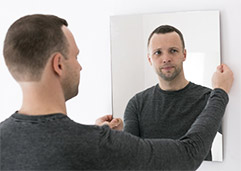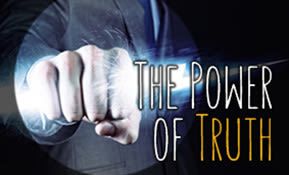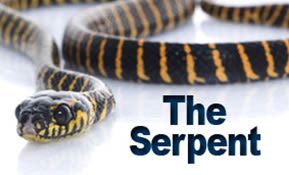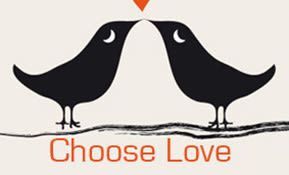
Mirror on the Wall
My friend was enjoying the book until we came to a fundamental principle of marriage based on the teachings of the Ariza’l which caused his eyeballs to pop out of their sockets...

I was learning The Garden of Peace, Rabbi Shalom Arush’s book for men on how to have a great marriage, with a friend of mine. My friend was enjoying the book very much – until we came to a fundamental principle of marriage based on the teachings of the holy Ariza”l which caused his eyeballs to pop out of their sockets. It’s the idea that a man’s wife serves as his mirror by reflecting certain deficiencies in himself that need to be fixed.
[Turning red and with the veins in his neck bulging]
“How could that be?” he said “My wife and I are extreme opposites. My wife isn’t like me at all – she’s much more passive than I am: she procrastinates…she won’t stand up for herself if someone rips her off – but me, I’m a fighter. In business I’m known as a mover and a shaker. I’m the pro-active, aggressive type. How could my wife’s passive behavior be a mirror for me? I know I probably have a lot of things to work on but with all due respect to you and the Ariza”l (foam emerging around the mouth) passivity is not one of them!”
Let’s stop and consider what’s going on here. My friend is not an ignoramus. He’s a Torah scholar, who  knows about the extraordinary greatness of the holy Ariza”l’s perceptions and insights into the spiritual worlds. As our time to learn came to an end, I was left with two questions: the first was how could my educated friend possibly think that a teaching of the Ariza”l, which Rabbi Arush refers to in The Garden of Peace, doesn’t apply to him? My second question was what exactly was the passive quality (or qualities) in my macho friend, which he was denying, but that Hashem was signaling to him through his wife to fix?
knows about the extraordinary greatness of the holy Ariza”l’s perceptions and insights into the spiritual worlds. As our time to learn came to an end, I was left with two questions: the first was how could my educated friend possibly think that a teaching of the Ariza”l, which Rabbi Arush refers to in The Garden of Peace, doesn’t apply to him? My second question was what exactly was the passive quality (or qualities) in my macho friend, which he was denying, but that Hashem was signaling to him through his wife to fix?
I found the answer to my first question in Rabbi Arush’s book The Garden of Knowledge, which is one of my favorite books by the Rav. In The Garden of Knowledge, Rabbi Arush writes about the four rungs of humility. The first rung of humility is learning to humble ourselves before Hashem himself. This is the first rung because it is the least challenging level of humility to achieve.
Now back to my friend: Okay, he doesn’t have any problem in recognizing that Hashem’s intelligence, so to speak, is light years ahead of his own intelligence and that he must nullify his will before Hashem’s will. He even can recognize that there are people who are clearly superior to him in holiness and wisdom such as the Ariza”l (this is in itself a level of self-nullification that many secular people don’t have). But here’s where my friend is really stuck: he cannot nullify himself to the opinions of even very great people like the Ariza”l, when their opinions conflict with his own opinions. Using the Rav’s handy diagnostic metaphor of The Ladder of Humility that has four ascending rungs, this man is stuck on rung two.
The second rung on the humility ladder is our willingness to put our ego aside in the presence of those greater than us. Merely acknowledging that there are people who are more righteous and more wise than we are is not enough. Humility at this stage requires that we must adapt and accept their opinions, even when they are opposite of our own. This is the first step of humility that brings a person to emotional health. Rebbe Nachman says that if the fool would listen to the wise man, he would be cured instantly. (The Garden of Knowledge, p. 92) For most individuals, submissiveness to a greater individual is a tremendous trial. (Ibid., p. 93) At this stage a person must be truthful with himself and realize that he can’t succeed on his own and that he needs the guidance and advice of those greater than him in a certain area. This is why the very first chapter of Ethics of the Fathers (Mishna, Tractate Avos) instructs us to find for ourselves, and connect to, a Rabbi and spiritual guide. ( Ibid., p. 93)
I found the answer to my second question in personal prayer. I realized that the passivity that he sees in his wife and which he criticizes his wife for, is really a reflection of his own passivity in not fighting more aggressively and praying more aggressively to guard his eyes from looking at other women. Yes, he is a “mover and a shaker” in his business dealings, but he is getting beat up mercilessly by the evil inclination hundreds of times a day when he passively allows his eyes to wander wherever they want to go without putting up a fight. His perception that his wife is a “procrastinator” is also a reflection of his own procrastination in implementing what he is learning about personal holiness. That is, he is only learning about personal holiness – but he procrastinates by not working on himself after the learning to implement this foundational principle – the foundation of a good marriage and moral lifestyle.
Here’s an exercise, based on the Rav’s teachings, to develop one’s second rung of humility. Feel free to copy it and share it with your friends
Exercise One
1. Would a patient give advice to a brain surgeon on how to perform brain surgery?
2. Would a brain surgeon give advice to a car mechanic on how to fix an engine?
3. If the brightest, most righteous men and women throughout Jewish history were willing to sacrifice their lives to uphold the Torah’s laws and values does it make sense that my own laws and values should supersede theirs?
4. If the great sages who lived 2000 years ago were afraid to utter a single word that they had not heard from their own spiritual master, how much more careful should we be to nullify our opinions to the laws and traditions that they passed down to us?
5. Think about the troubles that have occurred throughout the generations when the people refused to listen to the prophets and spiritual leaders.
6. How could those troubles have been avoided? By recognizing their nothingness in relation to Hashem and his righteous emissaries.
7. The Torah says that Moses was the greatest prophet that ever lived and ever will live. Since Moses also knew this about himself, how could the Torah also say that Moses was also the most humble person to ever live? The answer is that although Moses knew that he was the father of all prophets and therefore the greatest of them all, he did not attribute his greatness to himself – rather, Moses knew that his greatness was a free gift from G-d who G-d very easily could have given it to someone else.
8. Don’t say today’s Rabbi’s aren’t as holy as those that lived centuries ago. The Talmud says that we must look at our current day leaders the same way that earlier generations looked upon their prophets and great spiritual leaders.







Tell us what you think!
Thank you for your comment!
It will be published after approval by the Editor.